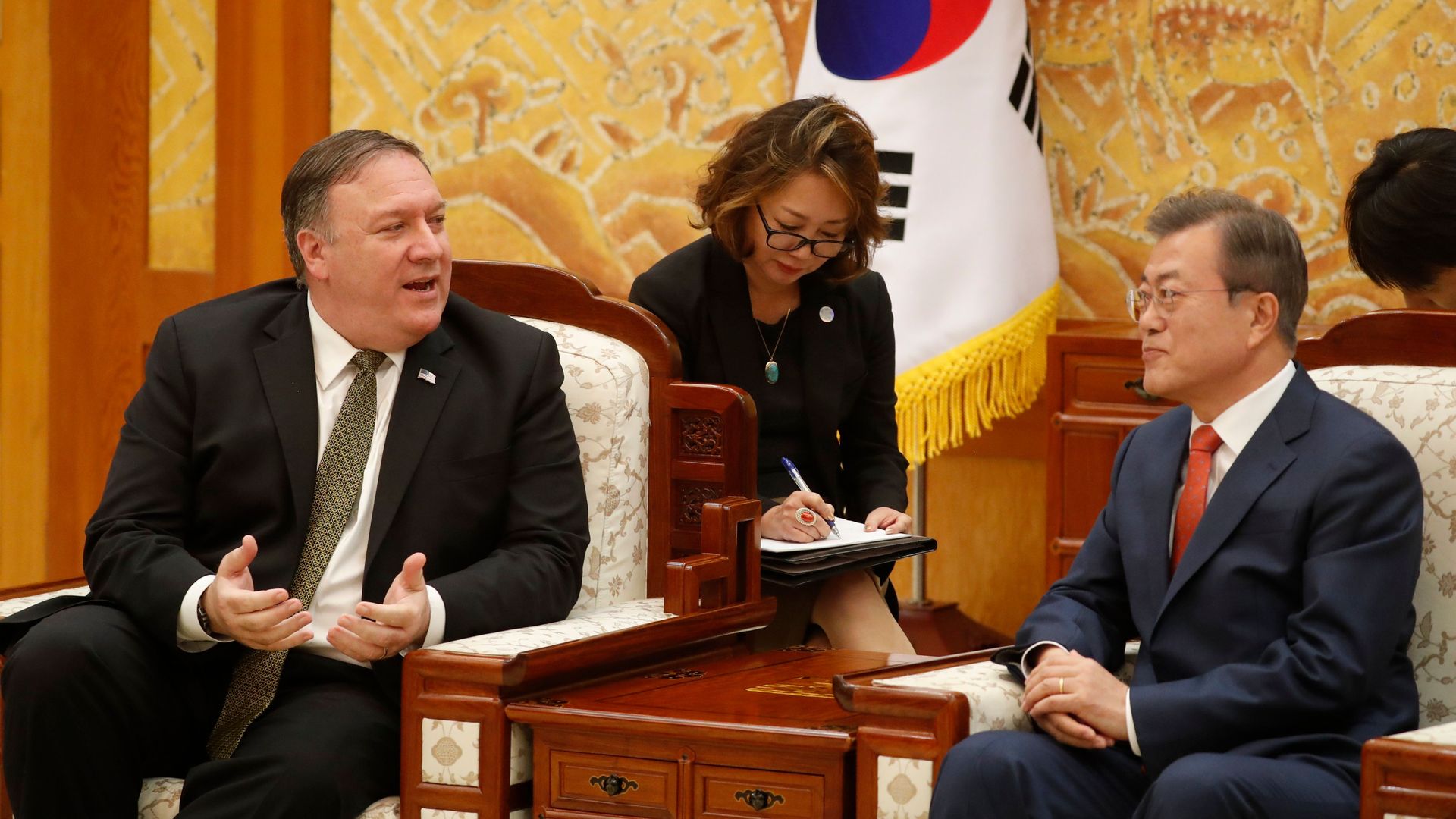Nov 8, 2018 - World
Expert VoicesU.S. needs tactical shift in North Korea talks
Add Axios as your preferred source to
see more of our stories on Google.

South Korean President Moon Jae-in and Secretary of State Mike Pompeo during a meeting at the presidential Blue House in Seoul on October 7, 2018. Photo: Kim Hong-Ji/AFP via Getty Images
